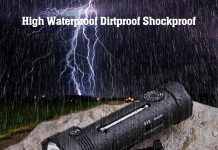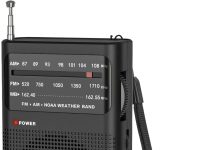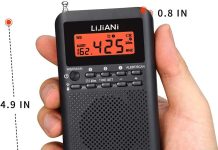Looking for a reliable source to get nationwide weather alerts? Look no further! In this article, we will explore the various weather radio channels that provide up-to-date and accurate weather information across the entire country. Stay tuned to find out which channels you should tune into for timely weather alerts that keep you informed and prepared for any upcoming atmospheric changes.
Review contents
Introduction to weather radio channels and their purpose
Weather radio channels play a crucial role in keeping us informed about the latest weather conditions and potential hazards. These channels are dedicated to providing timely and accurate weather updates, warnings, and alerts to ensure the safety of individuals and communities across the nation. Through various broadcasting platforms, they enable us to stay informed about severe weather events, such as hurricanes, tornadoes, floods, and storms, helping us make informed decisions and take necessary precautions to protect ourselves and our loved ones.
Why nationwide weather alerts are important
Nationwide weather alerts are vital because they allow us to stay ahead of potentially dangerous weather conditions. By providing advanced notice and timely information about severe weather events, these alerts enable us to take appropriate actions to ensure our safety. Whether it’s seeking shelter during a tornado warning or evacuating an area prone to flooding, nationwide weather alerts provide us with the necessary information to make informed decisions that can save lives and minimize property damage.
Different types of weather radios available
There are several types of weather radios available that provide nationwide weather alerts. These radios utilize various broadcasting platforms, including traditional radio frequencies, mobile apps, digital platforms, and commercial channels. Let’s explore some of the most common weather radio channels and platforms that offer nationwide weather alerts:
1. NOAA Weather Radio (NWR)
1.1 Importance and coverage of NOAA Weather Radio
NOAA Weather Radio (NWR) is a nationwide network of radio stations operated by the National Weather Service (NWS). NWR provides continuous weather updates, forecasts, watches, warnings, and other important information directly from NWS meteorologists. The coverage of NWR is extensive, spanning across all 50 states, including coastal areas, territories, and neighboring countries.
1.2 How to access nationwide weather alerts on NOAA Weather Radio
To access nationwide weather alerts on NOAA Weather Radio, you will need a specific weather radio receiver capable of receiving the broadcasts. These receivers are available in various forms, including portable handheld devices, desktop models, and even built-in radios in some newer smartphones. Simply tune in to the appropriate NWR frequency for your location, and you will receive real-time weather alerts and updates.
1.3 Additional features and benefits of NOAA Weather Radio
Aside from nationwide weather alerts, NOAA Weather Radio also provides a variety of additional features and benefits. These include regional weather forecasts, marine forecasts, hazard information, and even non-weather related emergency announcements, such as Amber Alerts. The availability of such comprehensive information makes NOAA Weather Radio an essential tool for staying informed and prepared for any type of emergency situation.
2. Emergency Alert System (EAS)
2.1 Overview and purpose of the Emergency Alert System
The Emergency Alert System (EAS) is a national public warning system that allows authorized government agencies, including the National Weather Service, to quickly disseminate emergency information to the public via broadcast, cable, and satellite television, as well as radio stations. The primary purpose of the EAS is to provide immediate and widespread alerts regarding hazardous weather conditions, natural disasters, civil emergencies, and other threats to public safety.
2.2 How nationwide weather alerts are broadcasted through EAS
Nationwide weather alerts are broadcasted through the Emergency Alert System (EAS) by authorized government agencies, such as the National Weather Service. When severe weather conditions pose a significant threat to life and property, the National Weather Service issues alerts, which are then distributed to EAS participants, including television and radio stations. These participants are required by law to interrupt regular programming and broadcast the alerts to ensure maximum reach and awareness among the public.
3. Mobile Apps and Digital Platforms
3.1 Role of mobile apps and digital platforms in providing nationwide weather alerts
With the rise of smartphones and digital technologies, mobile apps and digital platforms have become increasingly popular in delivering nationwide weather alerts. These platforms offer the convenience of accessing weather information on the go and provide real-time updates tailored to the user’s location. By leveraging geolocation and advanced data processing capabilities, these apps and platforms ensure that users receive accurate and relevant weather alerts no matter where they are.
3.2 Popular weather alert apps and digital platforms
3.2.1 The Weather Channel
The Weather Channel app is one of the most widely used weather alert apps available. With its intuitive interface and comprehensive forecast information, the app provides users with up-to-date weather alerts, severe weather warnings, and radar imagery. Users can customize the app to receive notifications for specific weather events, such as hurricanes, tornadoes, or flash floods, enabling them to stay informed and take appropriate actions.
3.2.2 AccuWeather
AccuWeather is another popular weather alert app that offers nationwide weather alerts and real-time updates. The app features an easy-to-use interface and provides users with detailed forecasts, radar maps, and severe weather alerts. AccuWeather also offers MinuteCast, a unique feature that provides hyper-localized, minute-by-minute precipitation forecasts, helping users plan their activities and stay ahead of changing weather conditions.
3.2.3 Weather Underground
Weather Underground, backed by a global network of weather enthusiasts and meteorologists, offers a robust weather alert platform. The app provides personalized weather forecasts and alerts based on crowd-sourced data and real-time updates from weather stations worldwide. Users can receive push notifications for severe weather alerts and customize the app to prioritize specific weather events or regions of interest.
4. Commercial Weather Radio Channels
4.1 Overview of commercial weather radio channels
In addition to government-operated weather radio channels, there are also commercial weather radio channels that provide nationwide weather alerts. These channels are typically part of subscription-based services and are often available through satellite radio providers or online streaming platforms. While they may not offer the same level of coverage as government-operated channels, they still play a valuable role in delivering weather information to a wide audience.
4.2 Availability and coverage of nationwide weather alerts on commercial channels
Commercial weather radio channels typically provide nationwide weather alerts to subscribers. However, the availability and coverage may vary depending on the specific service and the area of coverage. Subscribers can usually access weather forecasts, severe weather alerts, and radar imagery through dedicated weather channels that are part of the commercial radio service.
4.3 Popular commercial weather radio channels
4.3.1 SiriusXM Weather
SiriusXM Weather is a popular commercial weather radio channel available through the SiriusXM satellite radio service. Subscribers can access comprehensive weather information, including nationwide weather alerts, through dedicated weather channels. The service offers real-time updates, radar imagery, and extended forecasts, allowing users to stay informed about current and upcoming weather conditions.
4.3.2 WeatherNation
WeatherNation is a dedicated weather channel available on various cable and satellite television providers. The channel specializes in providing 24/7 weather coverage, including nationwide weather alerts. Viewers can rely on WeatherNation to deliver timely updates, expert analysis, and live storm tracking, ensuring they stay informed and prepared for any severe weather event.
4.3.3 Radio Weather
Radio Weather is an online streaming service that focuses specifically on weather-related programming. Subscribers can access live weather updates, severe weather alerts, and educational content related to weather and climate. While Radio Weather may not have the same extensive coverage as other commercial channels, it offers a niche platform for those seeking specialized weather information.
5. Digital Weather Radios
5.1 Introduction to digital weather radios
Digital weather radios are advanced versions of traditional weather radios that incorporate digital technology to provide enhanced features and functionality. These radios receive weather alerts and other emergency information digitally, ensuring faster and more reliable reception. Digital weather radios are equipped with specific codes to filter out unnecessary alerts, delivering only the important notifications to the users.
5.2 Features and benefits of digital weather radios
Digital weather radios offer several features and benefits that make them a valuable tool for receiving nationwide weather alerts. These radios often have built-in alarm functions, allowing them to wake you up during the night for important weather updates. Additionally, many digital weather radios have backup power options, such as battery or crank power, ensuring that you can stay informed even during power outages or outdoor activities.
5.3 Availability of nationwide weather alerts on digital weather radios
Digital weather radios, such as those compliant with the Public Alert standard, are designed to receive nationwide weather alerts. By tuning into the specific frequency band dedicated to weather alert broadcasts, these radios can pick up alerts from the National Weather Service and other authorized agencies, ensuring that you receive timely notifications about severe weather events.
6. Monitoring Your Local Weather
6.1 Importance of monitoring local weather conditions
While nationwide weather alerts are crucial for staying informed about major weather events, monitoring local weather conditions is equally important. Local weather conditions can change rapidly and may pose immediate threats that might not be captured in national forecasts. By staying vigilant and monitoring your local weather, you can be prepared for sudden changes, such as thunderstorms, hailstorms, or localized flash flooding.
6.2 Local and regional weather radio channels
To monitor local weather conditions, it is advisable to tune in to local or regional weather radio channels. These channels cater to specific areas and provide hyper-localized weather forecasts, alerts, and warnings. By accessing these channels, you can receive detailed information on upcoming weather conditions, specific weather-related hazards, and recommended actions to ensure your safety.
6.3 Tips for staying informed about local weather alerts
To stay informed about local weather alerts, consider the following tips:
- Keep a weather radio, either traditional or digital, in your home or office to receive real-time updates and alerts.
- Install weather alert apps on your smartphone and enable push notifications for your area.
- Follow local news stations and meteorologists on social media platforms for immediate updates and live updates during severe weather events.
- Sign up for email or text message alerts from your local emergency management agency or weather service.
- Stay aware of your surroundings and be observant of changes in the weather, such as darkening skies, sudden temperature drops, or strong winds.
Conclusion
Nationwide weather alerts are essential for keeping us safe and informed during severe weather events. From the reliable coverage of NOAA Weather Radio to the convenience of mobile apps and digital platforms, there are various weather radio channels and platforms that provide nationwide weather alerts. By utilizing these resources and staying vigilant about local weather conditions, we can stay ahead of potential hazards and make informed decisions to protect ourselves and our communities. Remember, staying informed is the first step towards staying safe in any weather situation.



























